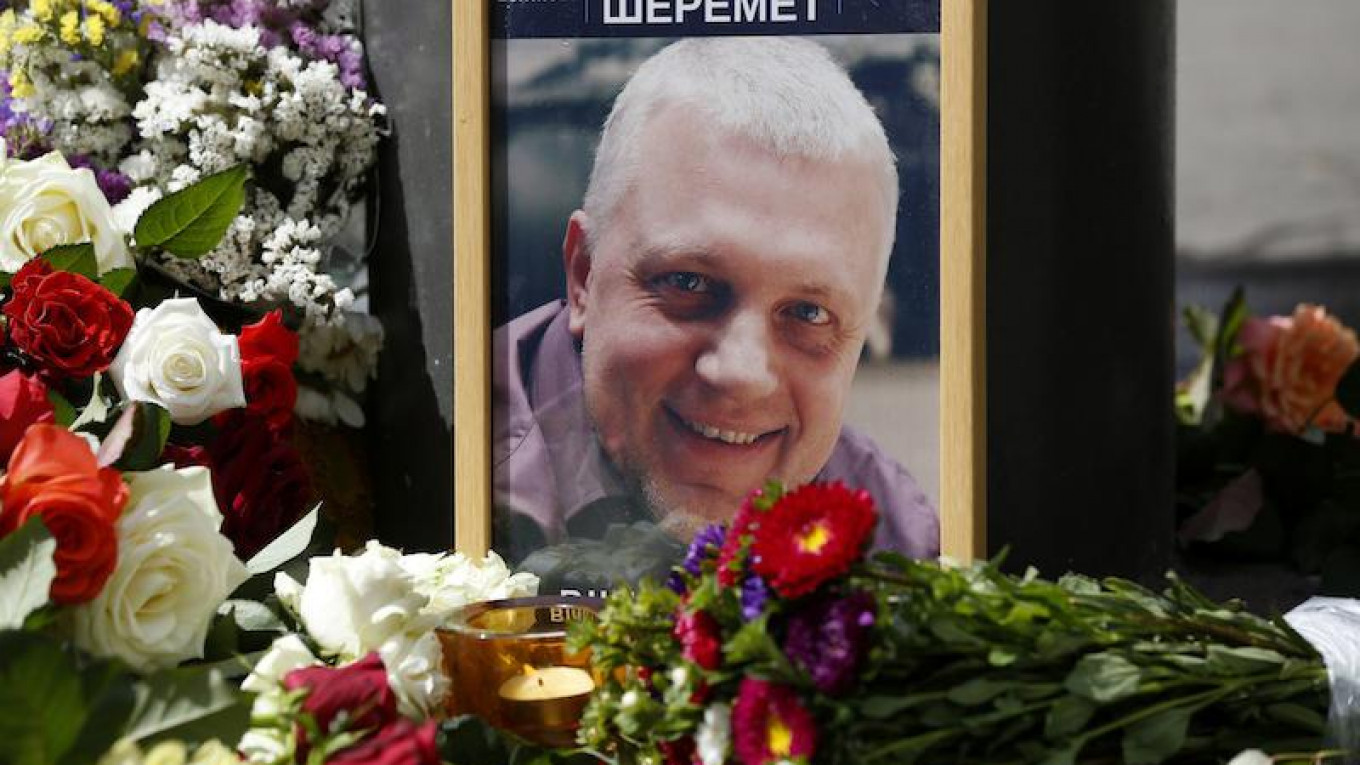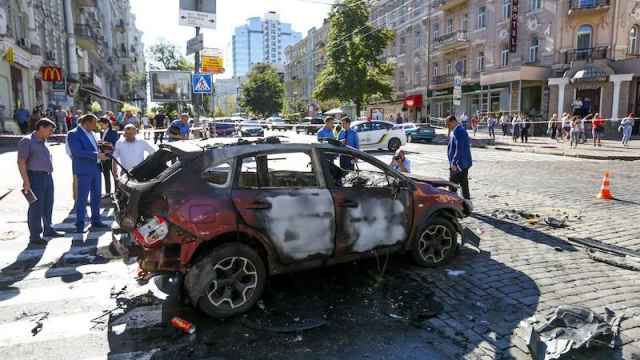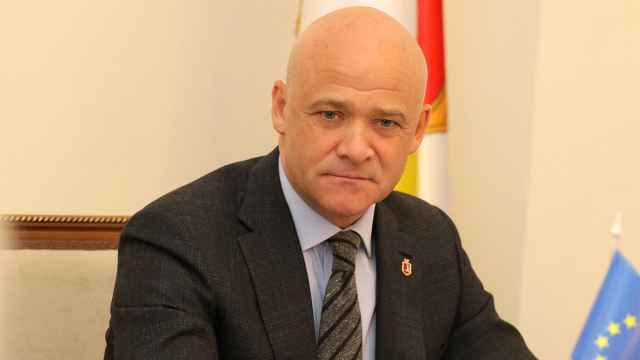Pavel Sheremet, a renowned investigative journalist, was killed by a car bomb while he was driving to work at Radio Vesti on Wednesday morning in central Kiev. The journalist’s funeral in his hometown of Minsk, Belarus, is set for July 23, and investigators are compiling theories surrounding his death.
His death has already been classified as “premeditated murder” by Kiev police, and the FBI and Europol have agreed to aid in the probe. Ukraine’s security services (SBU) announced four of their six main theories surrounding his murder on Thursday.
Professional Work
The theory that Sheremet was targeted because of his journalistic work was one of the first announced in Kiev on Wednesday. The journalist’s uncompromising investigations led to his imprisonment in Belarus in 1997, and to his persecution and firing in Russia. Friends of Sheremet and his partner and colleague, Ukrainskaya Pravda editor Olena Prytula, told The Moscow Times on Wednesday that both had long complained about being followed. Sevgil Musayeva-Borovyk, head editor of Ukrainskaya Pravda’s news site, linked Sheremet’s death to his work as well, especially given the timing of the incident: during his routine morning commute. The New York Times once described Sheremet as “a thorn in the side of President Alexander Lukashenko’s autocratic government,” because of his investigations into the country’s corruption and political abuse.
Hostile Personal Relations
Personal enmity might have been the motive for the attack, news website RBC reported early Wednesday. Ukrainian police have not yet provided grounds for this theory, but some have speculated about Sheremet’s connection to murdered Russian opposition politician Boris Nemtsov. He and Nemtsov were close friends, as Russian opposition politician Ilya Yashin described on social media. Many of those close to the slain journalist have described him as “cheerful,” and Russian journalist Olga Allenova said he could “always find a common language with anyone.”
Russian Trace
One popular theory, advisor to SBU’s head Yury Tandyt announced, is that this represents an attempt by Russia to “destabilize the situation” inside the Ukrainian government. Ukraine’s Interior Ministry spokesperson Artem Shevchenko took to social media Wednesday to declare the same thing, with some implicating “Russian special services.” One Ukrainian MP noted that the incident might signal the start to a special operation investigating Ukrainian law enforcement and security. Tandyt expects that “other spectacles will be staged to try to show that Ukraine has no authority, that law enforcement does not control the situation.” The Russian Foreign Ministry has denied these accusations, denouncing them as “Russophobic.”
Attempt on Prytula
Some are questioning whether Sheremet was the target at all: the car he was driving belonged to Prytula, and they both regularly used it. The Ukrainian prosecutor’s office, which announced this possibility, said it’s too early to discuss possible motives but that the couple’s home was being looked into. However, Prytula, who is being provided extra security, has made enemies across the political spectrum because of her hard-hitting stories. She heads a publication that has made its name through its critical, investigative journalism and has a violent past. Its founder, Ukrainian investigative journalist Georgiy Gongadze, disappeared in September 2000 in Kiev. He was found two months later, brutally murdered and abandoned in a forest.
A Message from The Moscow Times:
Dear readers,
We are facing unprecedented challenges. Russia's Prosecutor General's Office has designated The Moscow Times as an "undesirable" organization, criminalizing our work and putting our staff at risk of prosecution. This follows our earlier unjust labeling as a "foreign agent."
These actions are direct attempts to silence independent journalism in Russia. The authorities claim our work "discredits the decisions of the Russian leadership." We see things differently: we strive to provide accurate, unbiased reporting on Russia.
We, the journalists of The Moscow Times, refuse to be silenced. But to continue our work, we need your help.
Your support, no matter how small, makes a world of difference. If you can, please support us monthly starting from just $2. It's quick to set up, and every contribution makes a significant impact.
By supporting The Moscow Times, you're defending open, independent journalism in the face of repression. Thank you for standing with us.
Remind me later.






